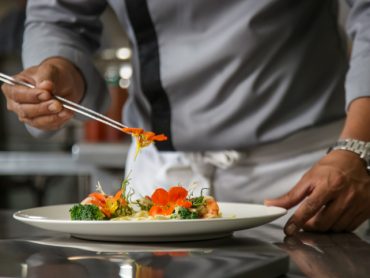Making Juice An Evening Occasion
While the hospitality industry continues to battle disruption on the technology front, foodservice is also experiencing a profound transition. Namely, people are eating healthier and are voting with their wallets for better food options at every meal of the day.
For breakfast, this means more customers opting for a fruit bowl with probiotic yogurt and fibrous chia seeds instead of the Western ‘grand slam’ of fried eggs, greasy bacon, hash browns and toast. For lunch, the simplest example is a salad instead of some form of carbohydrate-based sustenance. And for dinner, it means fewer decadent dessert orders, generally ‘lighter’ options and less alcohol.
It’s this last point that should be especially troubling because that’s where most restaurants make all their margins. While discussing how to give your alcohols sales a refresh is the subject of another article (or an entire book!), one trend you can capitalize upon is the growth in popularity of vegetable juices and smoothies.
I’m not talking about the regular, commercialized juices that are manufactured from fruit concentrate and high fructose corn syrup. Nowadays, those products are widely demonized for their obesity, diabetes and cancer-causing properties. As a result, sales in that category are stagnating. Instead, I am referring to the juices that are blended on the spot or those made within a few days from real produce and with no artificial additives.
While alcoholic beverages are lumped in with the commercialized juice brands as an unhealthy option, vegetable juices and smoothies are conversely viewed as excellent boosters, filling in any dietary gaps by promoting weight loss, balanced gut flora, immune system functionality, stress relief and sleep regulation. Moreover, restaurant patrons are willing to pay a premium for such healthy options.
While numerous coffeeshops and juice bars have sprung up over the past two decades to adequately service the morning and midday demands for these products, positioning them as a digestif alternative is still relatively fertile ground. In today’s fast-paced world, we are also seeing a rise in the consumption of beverages that product better sleep patterns – foremost among them being herbal teas – for which vegetable juices can also be marketed as beneficial in this regard.
Imagine dining out one night in the near future with your friends. You’re at a contemporary fusion restaurant that only uses organic, locally sourced ingredients and no one in your group has touched a single starch or had a drop of alcohol. When it comes time for dessert, the options aren’t your usual tiramisu, cheesecake or chocolate mousse. Rather, all the ‘solid’ choices are comprised of natural products such as fruit, nuts and honey without the use of refined sugar or dairy, while for the ‘fluids’ side there is a full list of non-alcoholic, plant-based nightcaps. These might include such currently popular selections like a raw carrot and cold-squeezed lemon shot or one that incorporates some trendy ‘superfoods’ like blended kale and dandelion greens. Then as the finishing touch you can throw some natural ‘sleep aids’ like ginger, oil of oregano, basil, turmeric, cayenne, tart cherry, chamomile or lavender. Despite the lack of alcohol, the options are hardly nominal.
The point with this is that, as hoteliers, we must first and foremost give our guests what they want. With the proliferation of these new age health-conscious individuals, servicing their needs at all hours of the day and night will be critical to keep them dining at our restaurants and not going across the street. So check in with your F&B department to see what can be done to provide your customers in this niche aspect and to thereby make an impact at suppertime where the juice market is largely underserviced.




